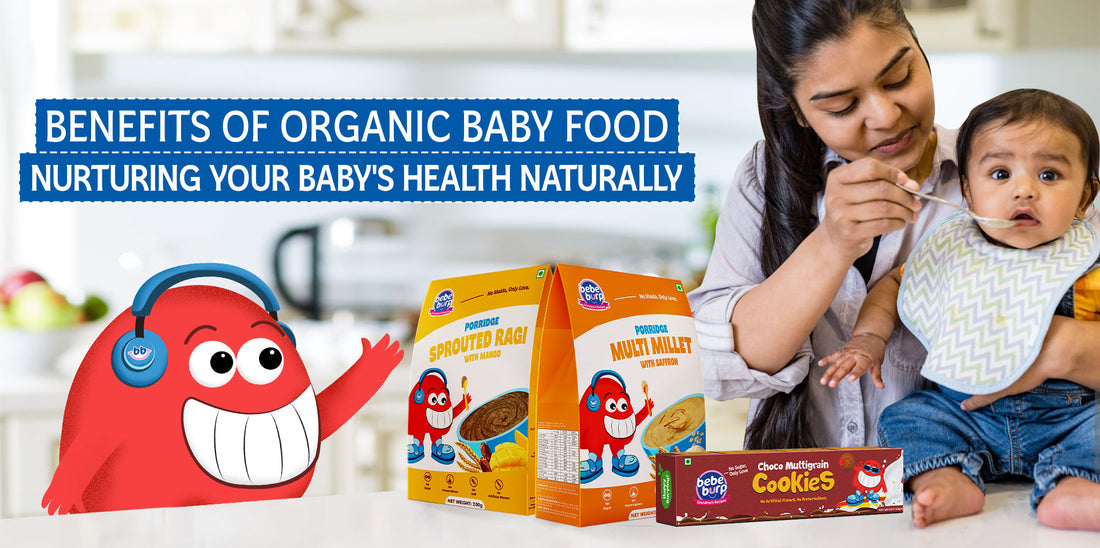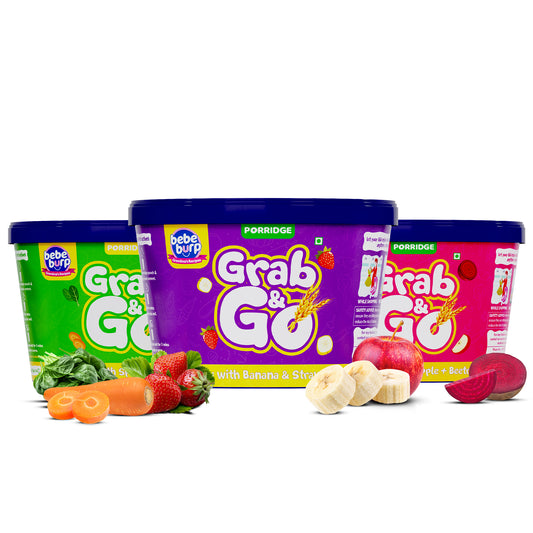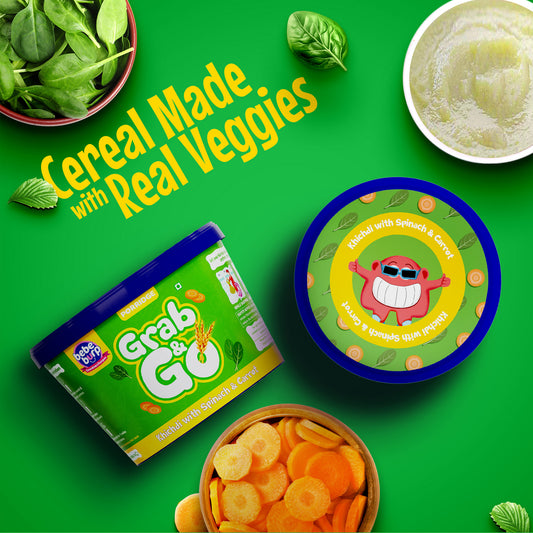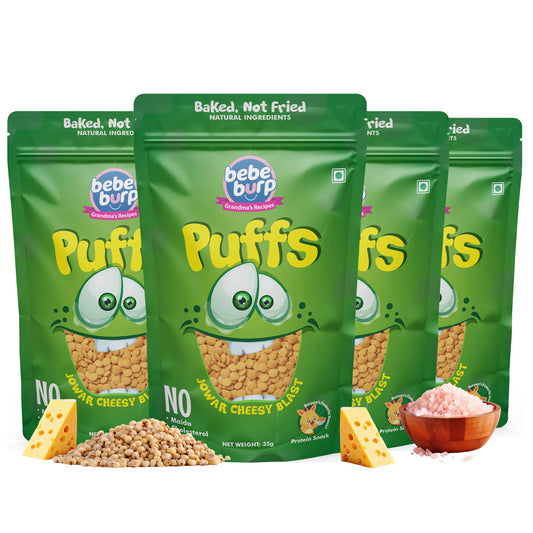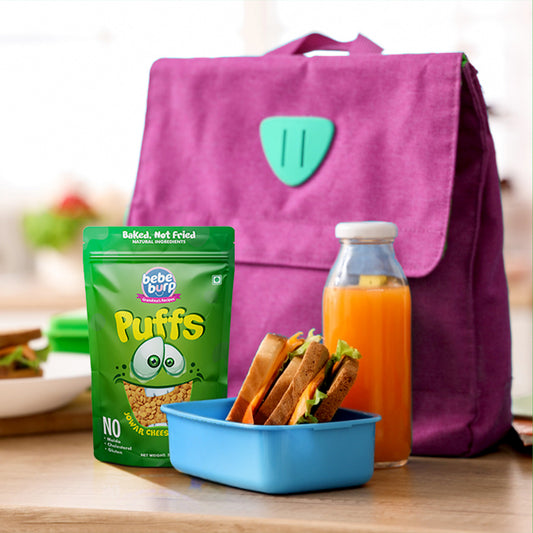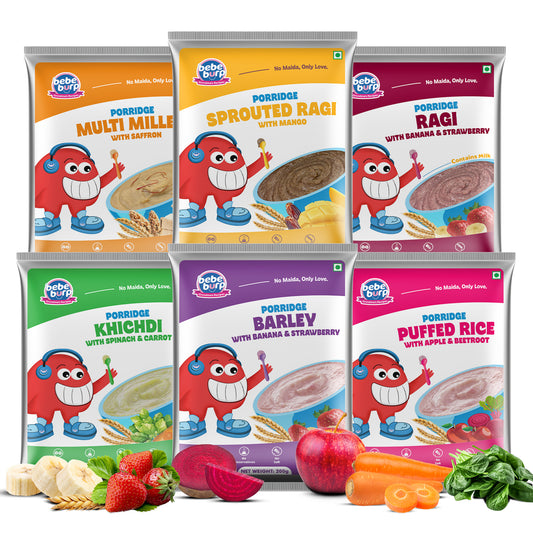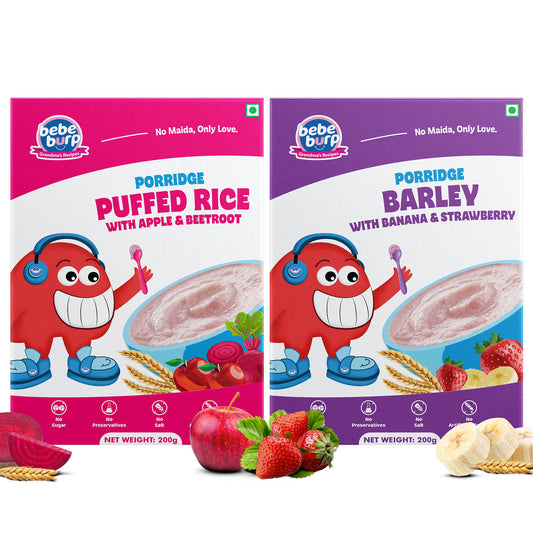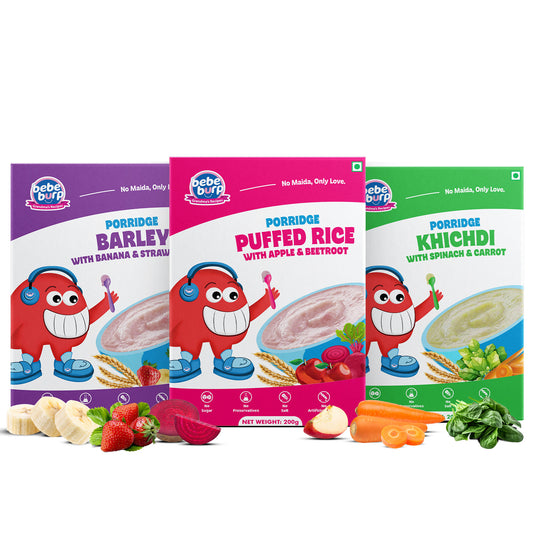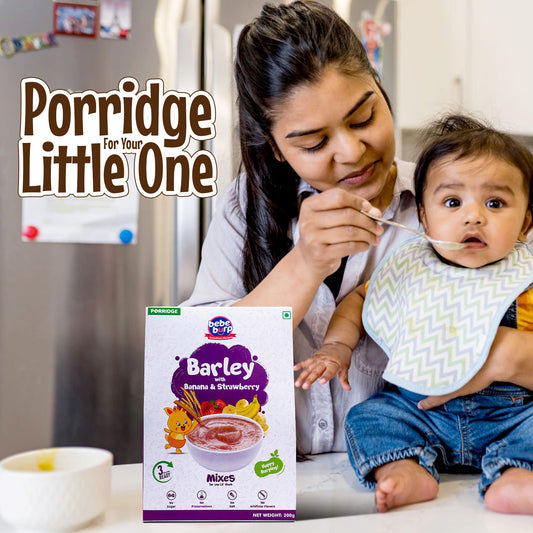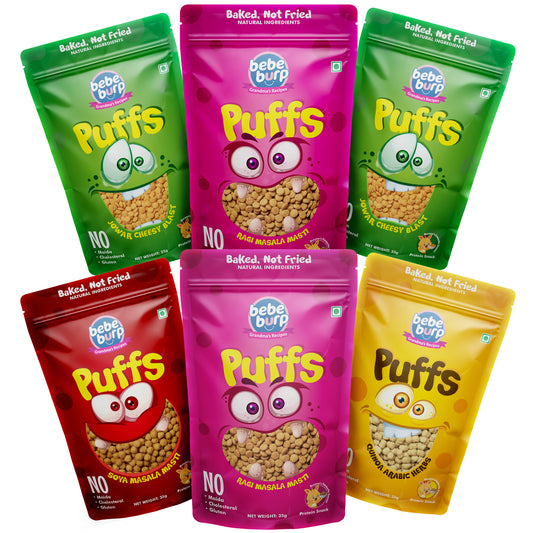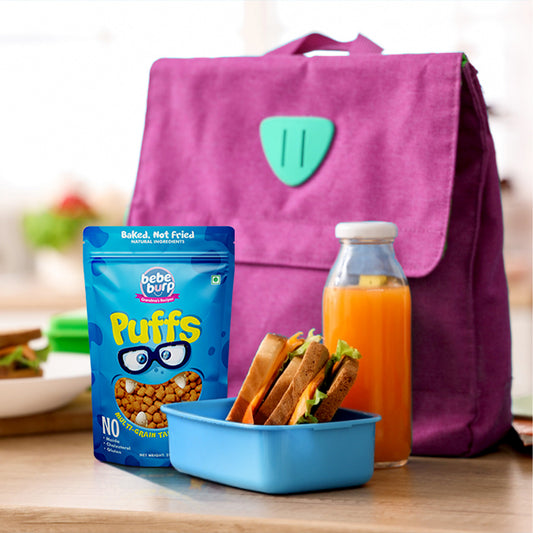Parents aim for complete growth and wellness for their babies when making feeding decisions.
Organic baby food has become a popular nutritional choice for parents because it provides natural health support for babies without dangerous chemicals.
The following post will examine organic baby food benefits while addressing customer doubts and sharing procedural advice.
Understanding Organic Baby Food Basics
Production of organic baby food does not include all use of synthetic pesticides together with herbicides, genetically modified organisms (GMOs), and artificial additives.
Organic certification means following rigorous agricultural and manufacturing requirements which orderlies from the USDA and EU Organic authorities. Here's what sets them apart:
- Production Methods: During organic farming operations, farmers maintain soil well-being through the employment of natural fertilizers such as compost and through crop shifting methods.
- Processing: Baby foods obtained from certified organic farms do not contain preservatives and artificial flavors, or colors.
- Certifications: Check for either the "USDA Organic" or "Organic EU" certificate because these labels confirm strict compliance
Nutritional Advantages of Organic Baby Food
Organic baby food is a primary parental choice mainly because of its nutritional advantages.
The nutritional content of essential vitamins, minerals, and antioxidants tends to surpass conventionally produced foods within organic food products.
Soil enrichment through organic farming creates nutrient-rich crops since the farming methods emphasize elevating soil quality.
Key Nutritional Benefits of Organic Baby Food:
- Higher Nutrient Content: Organic fruits and vegetables extract more key elements, including vitamin C along with iron together with magnesium, when compared to regular grown produce, according to scientific research.
- Lower Pesticide Residues: Organic produce carries no hazardous chemical pesticides in conventional fruits and vegetables. The defense system of babies under construction may benefit from staying away from these chemicals.
- More Omega-3 Fatty Acids: Organic milk, together with organic meat products, contains higher amounts of omega-3 fatty acids, which support brain development.
Selecting organic baby food products offers your baby an excellent nutritional foundation that leads to developing strong bones and healthy immunity, along with brain development.
Health Benefits for Infant Development
Organic baby food provides extended health advantages that extend past nutritive benefits.
Organic baby food absence of poisonous chemicals alongside pesticides, leads to enhanced healthcare outcomes for your newborn.
Because babies possess small bodies with developing bodily systems, they become more sensitive to harmful chemicals, so decreasing their contact with external poisons becomes essential.
Benefits for Infant Development:
-
Support for Brain Development: Organic foods containing antioxidants and saturated fats together create essential conditions for proper brain development as well as mental thinking.
-
Reduced Risk of Allergies: The fewer allergens present in organic foods make them suitable for irregular digestive systems and babies who come from families with a history of allergies or sensitivities.
-
Stronger Immune System: Your baby's immune system function improves through the high nutrient content in organic foods, alongside reduced pesticide levels thus leading to better health development.
Environmental and Sustainability Considerations
Your baby receives health benefits directly from organic baby food consumption and this choice supports better environmental conditions.
Organic farming systems aim for sustainability together with environmental friendliness in their design.
The exclusion of synthetic pesticides and fertilizers within organic farming represents a method that safeguards biodiversity while delivering healthy soil gardens and decreasing ecological pollutants.
Why Organic Baby Food Is Better for the Planet:
-
Reduction in Chemical Runoff: When farmers select organic methods, they decrease the use of harmful chemical pesticides and fertilizers, which then flow into waterways to hurt animals and pollute the water.
-
Supporting Biodiversity: The farming practices employed by organic farms include crop rotation systems together with methods that support multidimensional ecosystem health.
-
Lower Pollution level: The organic farming system requires fewer procedure-intensive practices that diminish carbon emission levels and minimize overall environmental destruction.
When you select organic baby food you will strengthen your baby’s health at the same time that you will support the preservation of our planet for future generations.
Addressing Common Concerns About Organic Baby Food
-
Cost: The expense of organic items can be offset by buying products in bulk or during the seasonal produce availability period, while home puree preparation also reduces costs.
-
Availability: Organic choices can be found in major retail stores across the country, and consumers can use internet delivery networks to access a broader range of products.
-
Necessity: Organic food remains one of several healthy options, yet it helps decrease chemical content, thus essential for children with developing immune function..
Choosing the Right Organic Baby Food
Baby growth depends heavily on selecting appropriate organic baby foods during development.
Organic foods exist without dangerous chemicals or pesticides which makes them a secure eating option. The best selection process includes the following essential steps.
Key Considerations:
-
Ingredients: Purchase foods made from basic whole components which include fruits together with vegetables and grains.
-
Certifications: The India Organic NPOP certification and USDA Organic and FSSAI present the required indicators to validate product quality.
-
Nutritional Value: Select foods rich in essential nutrients like vitamins, protein, and healthy fats.
-
Safety: Buy products manufactured by companies that demonstrate excellent safety performance together with transparent supply network management.
Packaging: Opt for eco-friendly, easy-to-handle packaging.
Examples of Organic Baby Food:
- Fruits: Apples, bananas, avocados.
- Vegetables: Sweet potatoes, peas, carrots.
- Grains: Quinoa, brown rice, oats.
- Dairy: Organic milk and yogurt.
- Proteins: Lentils, beans, chicken, fish.
Tips:
- Check the product ingredients for both added sugars and preservatives.
- Hispaniola Organics provides certified organic choices ensuring safety.
- Your choice should be shelf-stable products when storage needs allow refrigeration or not.
Why Choose Bebeburp?
All products at Bebeburp.com are certified organic baby foods with safe nutrition and no toxic chemicals added.
Healthier growth at various stages receives support through Bebebup's commitment to quality alongside safe handling and natural product composition.
Practical Tips for Incorporating Organic Foods
An individual can start using organic baby food without excessive difficulty. These helpful tips will simplify the process of starting organic baby food consumption:
Start Slow: You should introduce a new organic food item once at a time and then observe for any adverse effects.
Prepare Homemade Organic Purees: Homemade organic purees that parents make for their babies provide economic and health benefits.
Use Organic Snacks: You should have organic baby snacks, including puffs and crackers, ready as easy-to-carry treats.
Mix Organic with Conventional Foods: It becomes possible to combine organic baby food with conventional baby food when organic options have limited availability or are expensive.
Conclusion
The adoption of organic baby food brings multiple benefits that enhance your baby’s wellness and development strides alongside ecological well-being.
Organic baby nourishment delivers the highest quality dietary benefits to your child since it contains no dangerous chemicals or pesticides.
Organic baby food costs more money but its ability to let parents rest easy by providing healthy beginnings for their child makes it incredibly valuable.
Organic baby food, whether store-bought or homemade, will bring enduring advantages to your child's health and society's future through slightly increased costs.
Take care of your baby's health naturally by adopting organic food choices for infants from the start of your parent journey.

